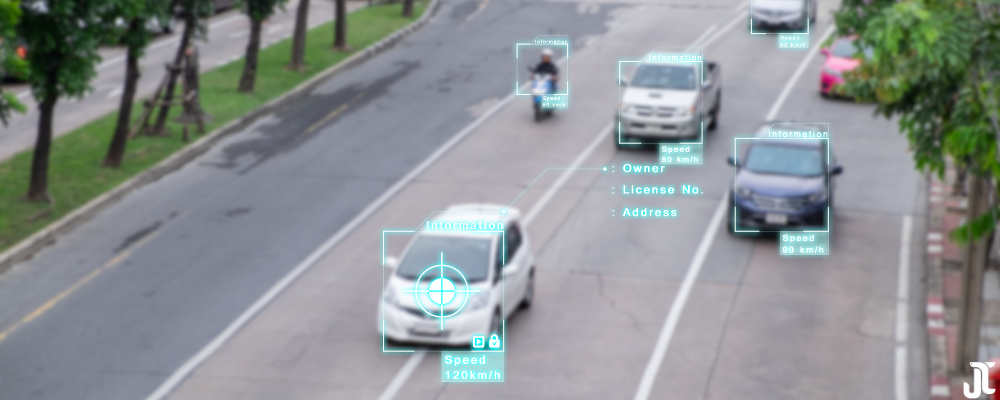How Autonomous Driving Technology Will Change the Face of Transportation
Thanks to autonomous driving technology, the transportation industry is set to a revolutionary change. Autonomous vehicles (AVs) can navigate roads with minimal human assistance because they incorporate cutting-edge AI, machine learning, and sensor technologies. This shift promises not only convenience but also transformative impacts on various aspects of daily life and broader urban infrastructure.
History of Autonomous Vehicles
The initial trials of self-driving technology began decades ago, marking the beginning of the road towards autonomous vehicles. Early examples of autonomous driving technology emerged in the 1980s with Mercedes-Benz’s robotic van and Carnegie Mellon University’s Navlab project. DARPA’s Grand Challenges, which encouraged creativity and cooperation in the field, led to notable breakthroughs in the 2000s. Companies like Google further accelerated development in the 2010s, leading to the sophisticated AV prototypes we see today.
Impact of Autonomous Vehicles in Urban Transportation:
Reduce traffic congestion:
Autonomous vehicles, with their ability to optimize traffic flow and reduce bottlenecks, have the potential to significantly reduce urban traffic congestion. This not only improves transportation efficiency, but also the overall quality of urban life. Thanks to sensors, cameras, and radar, autonomous driving systems are able to see their environment continuously and react more quickly than human drivers. They are better able to recognize possible threats, act quickly, and prevent collisions. As a result, widespread adoption of AVs could lead to safer roads and save thousands of lives each year.
Urban infrastructure changes:
It is critical to adapt urban infrastructure to allow autonomous vehicles to operate. Smart traffic lights, designated lanes, and other innovations will be required to ensure seamless integration and maximize the benefits of self-driving technology.
Public Transportation:
Autonomous technology can be used to supplement existing public transportation systems, resulting in a seamless, interconnected urban mobility solution. This integration has the potential to improve the efficiency and accessibility of the public transportation network.

Future Perspectives and Opportunities:
The future of smart transportation will be more innovative and transformative. We can say this by seeing technological advancements, shifting consumer preferences, and regulatory developments. The smart transportation market offers significant opportunities, including:
- Self-driving Vehicles: The widespread adoption of self-driving vehicles is expected to transform transportation, providing safer, more efficient, and accessible mobility options for passengers and goods.
- Electrification and Sustainability: Advances in battery technology, supportive government policies, and rising environmental awareness are accelerating the transition to electric mobility.
- Data-driven Perspectives: As IoT sensors and big data analytics become more prevalent, transportation stakeholders will be able to gain deeper insights into mobility patterns, optimize infrastructure investments, and improve overall system efficiency.
- Enhanced User Experience: Smart transportation solutions will prioritize user-centric design, providing personalized travel experiences, seamless connectivity, and increased accessibility for all passengers, including seniors and people with disabilities.
Impacts on the Economy and Environment
Both the economy and the environment may benefit greatly from autonomous cars. Automatic vehicles (AVs) have the potential to minimize emissions and fuel consumption by streamlining routes and driving habits. These environmental advantages would be enhanced by the switch to electric autonomous vehicles, which would lessen carbon emissions and contribute to cleaner air in cities.
From an economic perspective, the emergence of AVs may give rise to new sectors and jobs in infrastructure, tech, and maintenance. On the other hand, it could also upend already-established industries, such as traditional driving jobs. Policymakers will need to address these challenges by providing retraining programs and support for affected workers.
Key Benefits of Autonomous Vehicles in the Economy and Environment:
- Enhanced Fuel efficiency
- New Economic Opportunity
- Reduce accidents and insurance costs
- Energy conservation
- Environmental sustainability
Ethical and Legal Dilemmas of Autonomous Vehicles:
Autonomous vehicles are frequently marketed as the future of transportation, promising increased safety, efficiency, and convenience. As we can see, technology is rapidly advancing the future, and technology also has some legal and ethical dilemmas that society must check. Here, we are exploring some key ethical and legal concerns associated with autonomous vehicles.
- Autonomous accidents
- Data privacy
- Job displacement and economic impact
- Cyber attack
When it comes to the autonomous vehicle industry, how can we forget about the leading companies that are driving the industry forward?
- Waymo: Waymo was founded in 2009 to bridge the gap between self-driving cars and robotic taxis.
- Mobileye: Twenty years ago, Mobileye transformed driver assistance with a simple, radical idea: that a single, low-cost sensor, the camera, could serve as the foundation for life-saving technology.
- Cruise: Cruise, which was founded in 2013 and acquired by US automaker General Motors in 2016, began offering entirely autonomous taxi services in 2021, becoming the first company to completely offer driverless rides in US cities.
- Motional: Formed in 2020 as a joint venture between Hyundai Motor Group and Aptiv, Motional is today developing Level 4 autonomous vehicles for ride-hail and on-demand delivery.
Conclusion:
Autonomous vehicle technology has the potential to significantly alter the face of transportation, making it safer, more efficient, and more environmentally friendly. By reducing accidents, reshaping urban planning, and bringing about economic and environmental benefits, autonomous vehicles are set to play a crucial role in the future of smart transportation.
Jupical Technologies is at the forefront of this revolution, offering cutting-edge software solutions. If your organization is in need of innovative software solutions to drive your business forward, we invite you to contact us. Our expertise and tailored approach ensure that we deliver the right solutions to meet your unique needs, helping you stay ahead in the rapidly evolving landscape of smart transportation.


